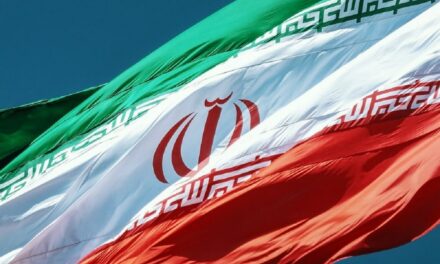We support our Publishers and Content Creators. You can view this story on their website by CLICKING HERE.
“We await the answer from Hamas,” Secretary of State Antony Blinken said of the group’s anticipated response to President Biden’s ceasefire proposal for Gaza, “and that will speak volumes about what they want, what they’re looking for, who they’re looking after.
“Are they looking after one guy who may be pronounced safe…” Blinken said of Yahya Sinwar, Hamas’s leader in Gaza who planned the group’s barbaric slaughter of 1,200 Israelis on October 7, ”while the people that he purports to represent continue to suffer in a crossfire of his own making? Or will he do what’s necessary to… help end the suffering of people, to help bring real security to Israelis and Palestinians alike?”
Did we really need to await Hamas’ response? Do we really wonder whether Sinwar – who’s hiding in Hamas’ tunnels in Gaza, reportedly shielded by some of its hostages – would ever put an end to Palestinian “suffering” and the onset of “real security to Israelis and Palestinians” before himself and his ruthless agenda? Must we slavishly pull at the presumed heartstrings of someone with blood on his hands and genocidal intent on his mind?
Blinken’s questions about Hamas, which he aired after the United Nations Security Council voted 14-0 for Biden’s ceasefire proposal, are rooted in… what? Hopeless naivety? Willful blindness? Or perhaps what I like to call “Western-ism” – an assumption that others around the world think like we do, share our Enlightenment-based values, and, of course, favor life over death.
The U.S. proposal holds no promise, for it rests on false assumptions. It presumes the possibility of successful negotiations between a democratic government that’s committed to preventing another October 7-like slaughter by destroying Hamas, and a terrorist group that vows more such attacks until it destroys the Jewish state.
As I’ve argued, those seeking more peace and less death over the long term should support Israeli efforts to destroy Hamas once and for all – lest we are forced to endure more rounds of terrorist attack, Israeli counterattack, and the deaths of innocent Palestinians who are purposely put in the crossfire.
For now, let’s focus on the misbegotten proposal at hand.
It would unfold in three phases: first, a temporary ceasefire that would last six weeks; second, a permanent “cessation of hostilities;” and third, a rebuilding of Gaza – with, at different stages, an Israeli withdrawal from Gaza, the return of Palestinians to their homes within the strip, more humanitarian aid, the freedom of all hostages, and the release of some Palestinian prisoners in Israel.
Good luck with that. On one hand, the proposal would not put Hamas permanently out of business, which makes it a non-starter for Israel. On the other hand, it would “not allow Hamas to re-arm,” which makes it a non-starter for a terrorist organization that – along with its state sponsor in Tehran and fellow terrorist groups in the Iranian-directed “axis of resistance” – seems emboldened by October 7.
“Hamas says it wants a ceasefire,” Biden said in outlining the proposal. “This deal is an opportunity to prove whether they really mean it.”
Of course Hamas wants a ceasefire (though only a temporary one)! It wants to regroup and rearm while it’s not subject to Israeli gunfire. What it doesn’t want – and what it’s made clear it will never accept – is the permanent “cessation of hostilities,” and its own defenestration, which the proposal envisions.
As for the notion that Hamas might care about the 2.1 million Palestinians it rules in Gaza, Blinken’s public challenge came just as the Wall Street Journal was documenting what anyone with clear eyes can see – that Sinwar and other Hamas leaders purposely put innocent Palestinians in harm’s way to increase civilian death totals and, in turn, subject Israel to more global opprobrium.
The Journal reviewed dozens of private communications from Sinwar and reported that in a message to Hamas leaders in Doha, he “cited civilian losses in national-liberation conflicts in places such as Algeria, where hundreds of thousands of people died fighting for independence from France, saying, ‘these are necessary sacrifices.’”
After Israel killed three adult sons of Hamas political leader Ismael Haniyeh in early April, Sinwar reassured him in a letter that these and other Palestinian deaths would “infuse life into the veins of this nation, prompting it to rise to its glory and honor.”
No dreamy proposal for permanent peace can change a harsh reality: Israel remains traumatized by October 7, and its government vows to do whatever it takes to prevent another one; meanwhile, an emboldened Hamas remains committed to Israel’s destruction and happy to treat Palestinians like cannon fodder.
Those who choose to ignore that reality are destined for more disappointment as they seek to impose peace from afar.
About the Author
Lawrence J. Haas is a senior fellow at the American Foreign Policy Council and the author of, most recently, The Kennedys in the World: How Jack, Bobby, and Ted Remade America’s Empire (Potomac Books).

 Conservative
Conservative  Search
Search Trending
Trending Current News
Current News 





